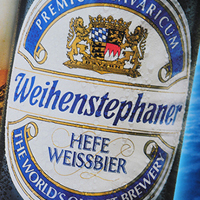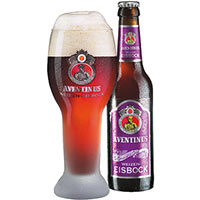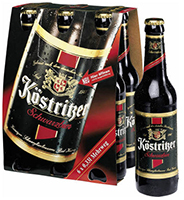 Today, the German Beer Purity Law — Reinheitsgebot — celebrates 501 years of absolutely nothing but barley (or wheat), hops, water, and yeast. Not so much as a spruce tip or cacao nib may defile anything called “beer.” Across Germany, breweries, brewing museums, beer gardens and micro-breweries will mark the purity law anniversary by opening their doors to allow a glimpse behind the scenes for visitors to experience the art of brewing as well as its long history. German brewing traditions are influenced by the highly controlled pragmatic Bavarian approach of the Reinheitsgebot coupled with the flamboyant, daring, and just plain weird ale-brewing approach that has brought the world altbier, gose and berliner weisse (we’ll save these for another day). When you add the open fermentation that often accompanies weissbier production, you start to get a sense of the way German brewing practices embody an ethos particular to that country. Peaks and Pints celebrates German Beer Day with a special beer sample flight, Craft Beer Crosscut 4.23.17: A Flight of German Beer Day.
Today, the German Beer Purity Law — Reinheitsgebot — celebrates 501 years of absolutely nothing but barley (or wheat), hops, water, and yeast. Not so much as a spruce tip or cacao nib may defile anything called “beer.” Across Germany, breweries, brewing museums, beer gardens and micro-breweries will mark the purity law anniversary by opening their doors to allow a glimpse behind the scenes for visitors to experience the art of brewing as well as its long history. German brewing traditions are influenced by the highly controlled pragmatic Bavarian approach of the Reinheitsgebot coupled with the flamboyant, daring, and just plain weird ale-brewing approach that has brought the world altbier, gose and berliner weisse (we’ll save these for another day). When you add the open fermentation that often accompanies weissbier production, you start to get a sense of the way German brewing practices embody an ethos particular to that country. Peaks and Pints celebrates German Beer Day with a special beer sample flight, Craft Beer Crosscut 4.23.17: A Flight of German Beer Day.
 Ayinger Brau Weisse
Ayinger Brau Weisse
5.1% ABV, 13 IBU
About 25 kilometers from the Oktoberfest grounds in Munich, lays a little town called Aying, home to the beloved Ayinger Brewery (Brauerei Aying). This 140-year-old brewery has a deep family history, and remained almost completely unchanged until a new, updated brewery was built in 1999 in order to keep up with the growing market. Again and again Ayinger has won awards for its beers, including the World Beer Cup, and the Deutschen Landwirtschafts Gesellschaft — DLG (German Agricultural Society) gold and silver medals. Today one of the DLG gold medal winners — Bräu-weisse. Pouring a bright and hazy golden color with a fluffy white head, there was a fair amount of suspended yeast floating about. The nose on this one was quite ripe with scents of banana and even a hint of those circus peanut candies. The flavor also had a large amount of banana character — spicy but with a candy sweetness at the finish.
 Weihenstephaner Hefeweissbier
Weihenstephaner Hefeweissbier
5.4% ABV, 14 IBU
Weihenstephaner lays claim to being Germany’s oldest continuous operating brewery, tracing its roots to an abbey brewery officially licensed in 1040, with evidence in the abbey’s records that it was receiving hops (and therefore probably brewing) as early as 768. Today the brewery is owned by the State of Bavaria and is the “house” lab for a top brewing- and fermentation-sciences school. Everything the brewery produces is well worth sampling, but the Hefeweissbier is something special. It’s unfiltered, giving it a cloudy appearance and a prominent yeastiness. The yeasts contribute the banana and clove aromas associated with the style. You might even detect some bubble-gum-like flavors. Weihenstephaner Hefeweissbier is the gold standard of the style and is hard to beat.
 Schneider Aventinus Weizen-Eisbock
Schneider Aventinus Weizen-Eisbock
12% ABV, 15 IBU
Eisbock is a traditional German beer that is made by freezing off and removing water to further concentrate flavor, body and alcohol content. In other words, eisbocks tend to be complex and extraordinarily rich beers that aren’t for the faint of heart (or weary of liver). Schneider Weisse‘s eisbock is wheat-based, with a smooth malty taste and creamy, syrupy feel. Rum, coffee, fruity flavors abound.
 Köstritzer Schwarzbier
Köstritzer Schwarzbier
4.8% ABV, 22 IBU
In April 1991, the Köstritzer Brauerei, a subsidiary of the Bitburger brewery, shed its 1543 wardrobe and emerged as of one of the most modern breweries in Thuringia, Germany. In September 1993, it re-introduced the “original Köstritzer black beer,” a traditional bottom-fermented lager that contains a distinctive fine malty flavor due to the use of refined barley malt. It’s a delicious blend of light freshness with a smooth, sweet finish.
 Ayinger Celebrator Doppelbock
Ayinger Celebrator Doppelbock
6.7% ABV, 24 IBU
During Lent, as legend goes, German monks sustained themselves by sipping strong, dark lagers dubbed doppelbocks. This timeworn tale of liquid bread tends to overshadow an indisputable truth: Doppelbocks are fantastic feats of brewing engineering, no more so than Ayinger Celebrator. With accolades from the late Michael Jackson and a collection of gold medals from the World Beer Cup, this rich, toffee-rocked lager is dark, crisp, with a touch of chocolate and grape notes. While presenting a full body, it’s not cloyingly sweet and features a wonderfully creamy body and enough alcohol to warm your palate.
